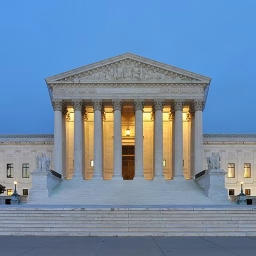

Supreme Court Bars Cops From Accessing Hotel Registries Without A Warrant
The Supreme Court ruled that police are not entitled to access to a hotel registry without a warrant.


The Supreme Court ruled that police are not entitled to access to a hotel registry without a warrant.


The Supreme Court has struck down a program that forced farmers to turn over a portion of their crop to the government without compensation.
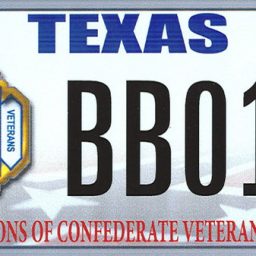
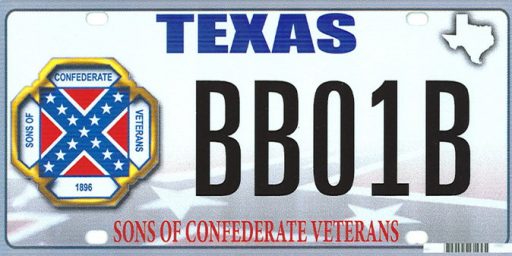
The Supreme Court ruled that states don’t have to grant license plates that display the Confederate flag. Their decision has the potential to seriously harm the First Amendment.


In a case that took seven months to decide, the Supreme Court ruled in favor of the Presidency’s broad authority in foreign affairs, and inserted itself just a little bit in the thorny politics of the Middle East.
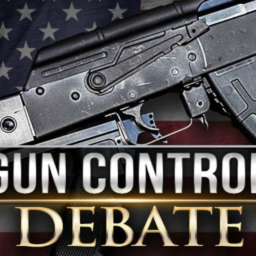

In a setback for the gun rights movement, the Supreme Court has let stand a San Francisco law that places tough restrictions on handgun ownership.


The Supreme Court ruled in favor of a Muslim woman who was refused a job because of her hijab.
The Supreme Court has narrowed the means by which Federal prosecutors can prosecute someone for making statements online that could be perceived as threats.


House Republicans are set to vote on a bill banning abortion in almost all cases after twenty weeks. What they can’t do is explain where the Constitution gives Congress the power to do this.
In a 6-3 vote that defied traditional expectations, the Justices have limited the ability of police to detain people on the side of the road for long periods of time.
Once again, the Supreme Court appears to be sharply divided on the latest challenge to the Affordable Care Act.
By refusing to stay the legalization of same-sex marriage in Alabama, the Supreme Court has sent the strongest signal yet that it is ready to legalize same-sex marriage nationwide.
More interesting developments from the Supreme Court on what has been one of the biggest legal stories of 2014.


The Court holds that Federal Law does not require employees to be paid for the time waiting to get through mandatory security screening.
The next President will have a profound ability to shape the future of the Supreme Court, but that is unlikely to be the most important issue on voters minds in 2016.
Every member of the Supreme Court graduated from an Ivy League Law School. That kind of homogeneity is not healthy.
Same-sex marriage advanced in Kansas and South Carolina yesterday, and will soon be law in Montana, but the Supreme Court is what matters now,


Opponents of Voter ID laws should not get too excited over the fact that the Supreme Court has stayed Wisconsin’s law from going into effect for now.


Justice Ginsburg had some interesting things to say about the same-sex marriage cases headed to the Supreme Court.


Another solid victory for the First Amendment from the Roberts Court.


New technology doesn’t mean that the laws don’t apply.
Even the most ideologically divided members of the Supreme Court agree with each other 65% of the time.
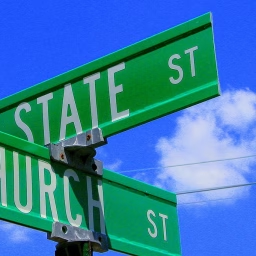

The Supreme Court declined to review a lower court ruling that public school graduations in churches are unconstitutional.
The Supreme Court, unsurprisingly, ruled that lying on a Federal form about a gun purchase is, in fact, a crime.


A hopeful First Amendment decision from the Supreme Court.


Using a chemical to commit a purely domestic crime doesn’t make you an international criminal, the Supreme Court correctly decided today.


The Supreme Court has again ruled that prayers that open legislative sessions are not unconstitutional.
The Court gets the result right, but their reasoning will make things much more difficult for courts, defendants, and victims.
Yesterday the Supreme Court greatly expanded the circumstances under which police can rely on anonymous tips.
The Supreme Court may have just found a way to end the debate over Affirmative Action in education.
In retrospect, and in comparison with other recent Presidents, George Herbert Walker Bush’s four years in office were pretty darn good.


Once again, the Supreme Court reminds us that limiting political speech is unconstitutional.
Another liberal legal scholar is calling on Justice Ginsburg to resign. She’s unlikely to listen to them.
A GOP Senate Candidate in Georgia attempts to back track, and runs off the rails in the process.
Should states have the right to ban affirmative action? The Supreme Court will decide that this term.


And Republicans wonder why they have problems with minority voters.
Conservatives are doing what they criticized JournoList for doing—even though JournoList didn’t.
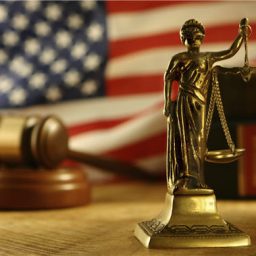

The Supreme Court today struck down the most controversial part of the Voting Rights Act of 1965.
A major Constitutional ruling from the Supreme Court.


The Supreme Court’s decision on Affirmative Action in education didn’t go as far as many thought it would, but it’s future in the near-term seems fairly clear.


Today’s decision by the Supreme Court was, on the surface, a victory for Federal Supremacy, but the issue itself is far from resolved.


Thanks to the Supreme Court, your DNA cannot be patented.
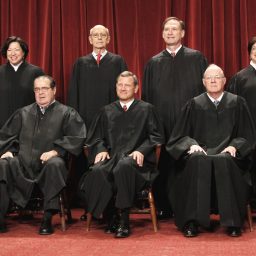

The Court’s 2012-2013 term begins tomorrow morning, and there are plenty of big cases on the docket.


If you can name at least one of these people, you know more than two-thirds of your fellow citizens.